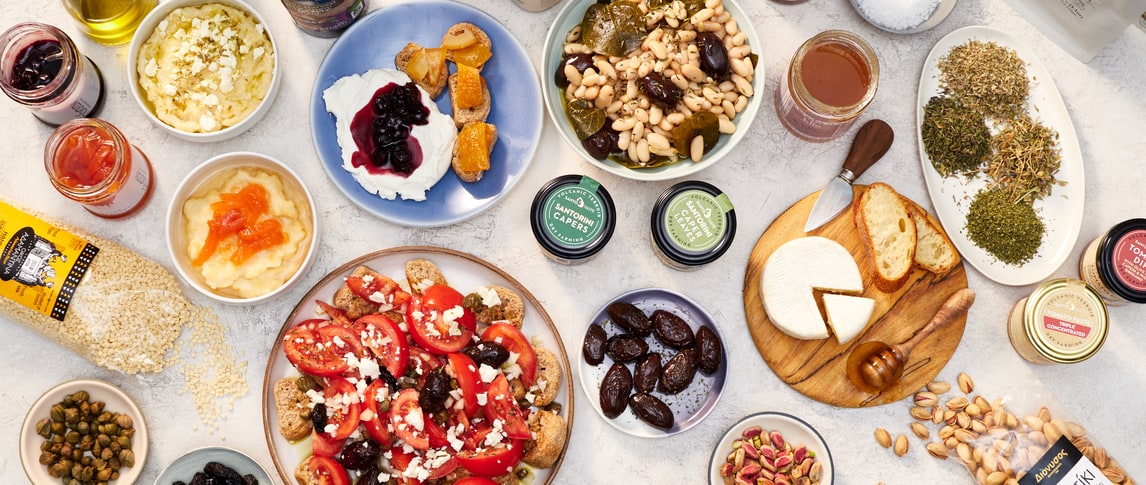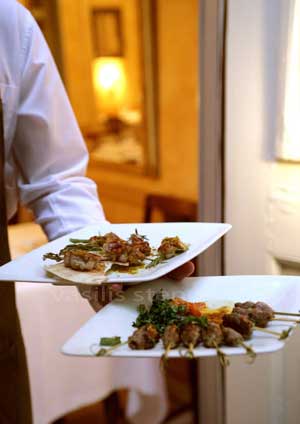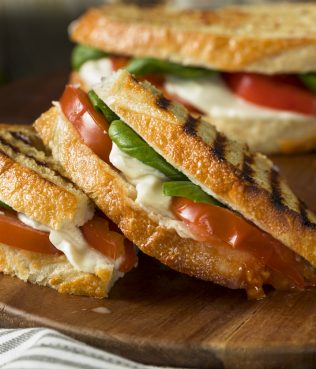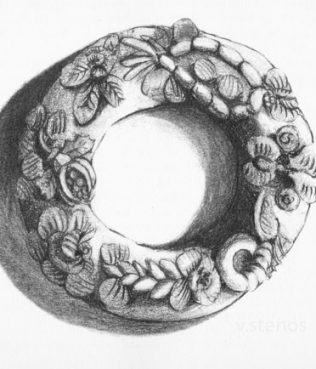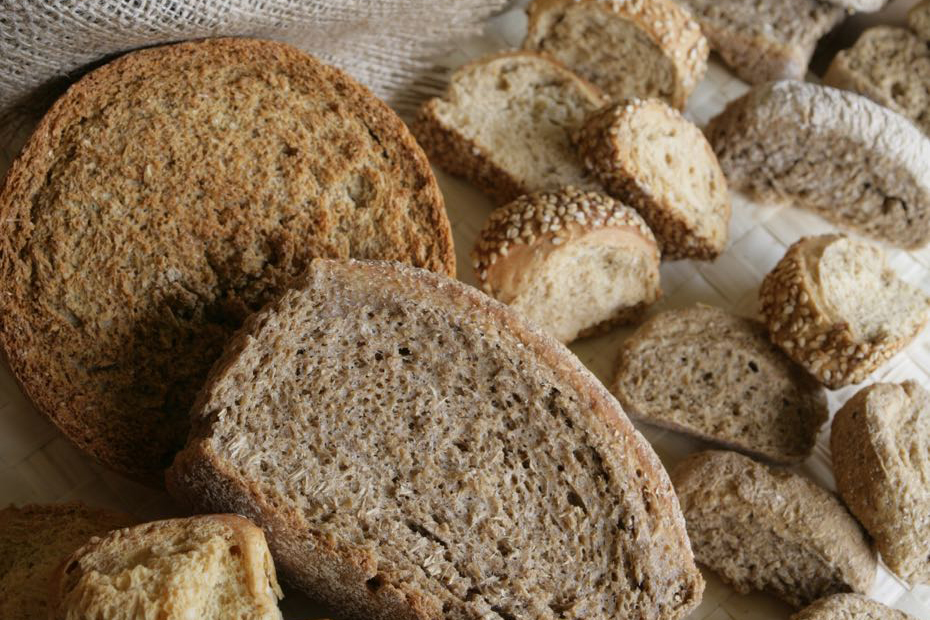
Paximadia, Bread Rusks
Paximadia -- rusks -- have a long and storied history in Greece. Paximadia more or less as we know them today derive from the ancient Greek dipyros, which means twice-baked, essentially a savory biscuit. The rusks are called paximadia after a Byzantine monk named Paximus, who improved on the ancient recipe leaving a legacy that to this day is a living tradition. Rusks are made all over Greece and come in all manner of shapes and sizes; the dough can be made from wheat, rye, barley, corn, carob and chickpea flour, or from various combinations thereof. The following recipes is from a home baker in the town of Enagron, a mountain village between Rethymnon and Irakleion. Crete, perhaps more than anywhere else in Greece, is renowned for the variety of paximadia, both sweet and savory, traditionally made on the island.
RATING
Ingredients
- Makes about 10 pounds
- 2 pounds whole wheat flour
- 2 pounds all-purpose flour
- 2 pounds corn meal
- 2 pounds rye flour
- 2 pounds barley flour
- 1 1/2 quarts lukewarm water
- 1 pound / 1/2 kg sourdough starter called prozymi in Greek and made by keeping a pound of dough from previous breadmaking
- 2 cups extra virgin Greek olive oil
- 3 tablespoons salt
- 2 tablespoons sugar
Instructions
-
Fire up a wood-burning oven or preheat your home oven to 450F/232C.
-
Sift all the flours together in a very large mixing bowl. Form a well in the center.
-
Dilute the starter in the well with about a third of the lukewarm water. Add sugar on top of starter (sugar will help the starter work better). Add 1 cup olive oil and and sprinkle the salt around the rim of the flour. Add a cup or two more of the water and start gradually kneading to form a dense dough mass that doesn’t stick. Local bread bakers, toward the end of the kneading process, dampen their hands with water, thus adding a little more moisture to the dough without adding so much that the dough will be sticky.
-
Cover the dough with folded white cotton bed sheet and cover that with a woolen blanket, to contain the heat, which ultimately helps the dough rise. The ceramic bowl also retains heat. Let it rise for about an hour.
-
Shape the dough into into loaves about 3 inches wide and as long as your baking sheets can hold. Score the slices almost but not all the way to the bottom. This will help you separate the slices when the dough is baked.
-
Lay the loaves next to one another, a few inches apart, on the baking sheets. Brush them with olive oil and place lemon leaves in a few places under the loaves, which imparts a lovely aroma and is a traditional rusk-making technique on Crete.
-
Put the baking tray into a really hot oven to bake for about 15 to 20 minutes.
-
Remove, cool slightly, and break off the scored slices. Remove the leaves and lay the rusks on a dry baking tray.
-
Let the wood-fired oven die down, or reduce temperature on a conventional oven to 130F/54C. Let the rusks dehydrate over night in low heat.
-
Remove, cool and store in muslin bags.
